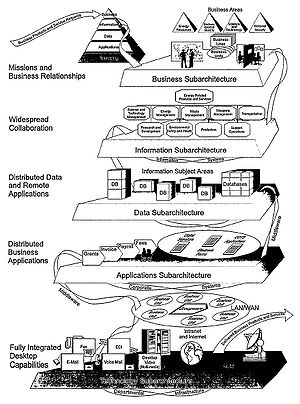 If you haven't been to my blog before you might want to subscribe to my feed
If you haven't been to my blog before you might want to subscribe to my feed
For most business owners buying or selling their business is a rare event indeed. In fact many owner managed businesses do it only once, when they exit their business to retire. Like most things in life the first time you do something is the occasion when you make the most mistakes. If you are selling a business you can't afford to make mistakes because its the only chance you'll get.
When buying a business making a mistake can leave you not only seriously overpaying for a business but having a management headache which may take years not months to put right and in the meantime will seriously damage the prospects of your current business.
It may be some comfort to know that it is not just smaller businesses the make horrendous mistakes, big businesses all too regularly fall into the same trap. I know from personal experience the the business I worked for in my last corporate role was purchased by another company and the acquisition almost brought the acquiring company to its knees, because as far as I could see it made two of these common mistakes.
Mistake No1 Getting emotionally involved with the sale.
Lets face it, its exciting to be buying or selling a business and it requires a lot of management time. For the vendor selling a business there is the prospect of making that exit and having the money to retire. For the buyer there is the undoubted prestige of acquiring a business and the prospect of a big jump in company size or new geographic coverage.
The result for the unwary buyer is that in buying a business they get duped into paying too high a price because they get wrapped up in the chase. For the novice seller the process of selling the business gets dragged out over a long period of time, causing them to take their eye off the day to day management of the business, often leading to a downturn in its fortunes and so its ultimate price.
Mistake No 2 Not Having a Walk Away Number
|
|
| Negotiation Cartoons: Positions Vs. Interests (Photo credit: jonny goldstein) |
Buying or Selling a business involves negotiation, in order to make sure you don't pay too much when buying a business or get paid too little when selling a business you need to establish 1. what is the value of the business and 2. what is the maximum you'll pay or minimum you'll accept. Once you've established this you'll be much better placed in the negotiation and you'll be less likely to make mistake No1
Mistake No 3 Not understanding the Impact of Culture
This Ladies and Gentleman is the big one, of all the issues that get overlooked culture stands head and shoulders above everything else. Good businesses have strong cultures, their staff have bought into the fact that their way is the right way. Now imagine what happens when these staff are told, that their way is no longer the right way and your way is the right way. Yes that's right they'll find every reason to demonstrate the flaws in your system and why your way is not the right way. Worse they are butting up against your staff who are equally convinced that your way is the right way. So you tend either to have a very difficult integration problem because you now have two opposing camps or you have an attrition problem as the staff from the acquired company leave.
The seller will of course say that culture isn't a problem, because to him it isn't. Either there isn't a problem with culture or its too late for you when you find out there is as he's already got his money. Why don't people address this problem? Firstly because so many don't even recognise it as an issue and secondly because the have made mistake number 1 and are looking for reasons to buy rather than looking for issues.
Mistake No 4 Underestimating Management Effort
Buying a business is just the first step, now you've got to integrate it with the rest of your business so that means addressing, culture, strategy, planning, financial systems, sales, customer relationships a new organisational structure to mention just a few. The management effort to achieve this is considerable even if you have willing staff , so don't be surprised if it takes 6 months to a year to get it all bedded down. This effort is considerable even if the new acquired company is small in comparison to yours.
Mistake No 5 Buying a business that is too big or too small
This tends to relate to the problem of biting off more than you can chew. Remember the bigger the business you buy in relation to you the acquirer the more political clout it will have and the more concessions you will have to make, and the longer integration will take. The more your management is focused on the acquisition the bigger the risk that they will let your core business slip and then you have a really big management headache, that is, trying to integrate the new business and recover your own.
The other side of the coin is that you waste your money on something too small which won't payback a recent return on all the management effort required to integrate it into your existing business.
Once you understand these problems you are on your way to avoiding them and making your acquisitions a success and not a millstone.






















